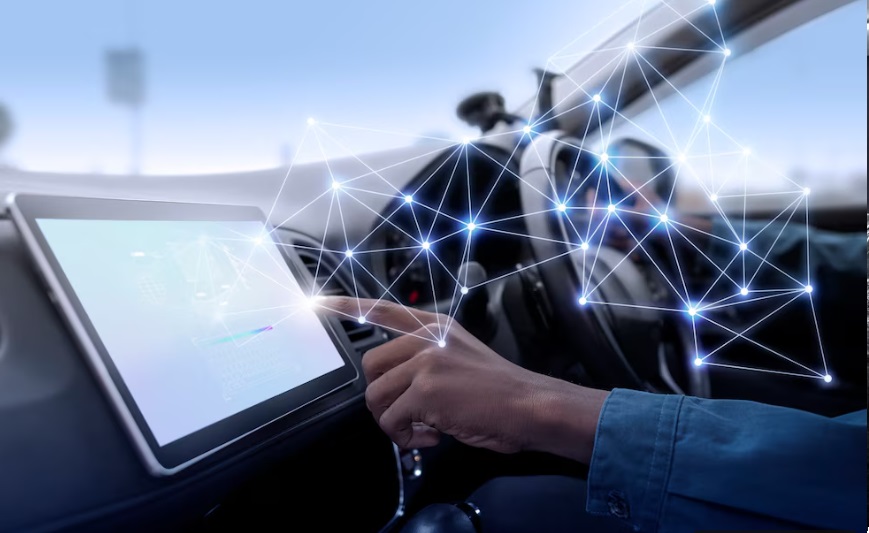The auto industry is undergoing a significant transformation, and nowhere is this more evident than in the car rental sector. Technology is driving the evolution of car rentals, making the process smoother, faster, and more efficient for both businesses and customers. From the integration of mobile apps to advanced fleet management systems, these innovations are reshaping how car rental companies operate. In this article, we will explore the key technological advancements that are shaping the future of car rentals.
1. Mobile Apps for Seamless Booking and Customer Experience
Mobile apps have become a game-changer for car rental businesses. They provide a convenient platform for customers to book, manage, and return vehicles with just a few taps, enhancing both the customer experience and operational efficiency.
-
Easy Booking: Customers can browse available vehicles, check prices, and book a car directly from their smartphone. This eliminates the need for phone calls or visits to rental locations, providing a seamless booking process.
-
Keyless Entry: Some car rental services are using mobile apps to offer keyless entry systems. After a customer books a car, they can unlock and start the vehicle through their smartphone. This technology provides added convenience, allowing customers to pick up and drop off cars at any time without needing to interact with staff.
-
In-App Payments: With mobile apps, customers can make payments securely and quickly. They can also view rental history, manage additional services (like insurance or GPS), and receive real-time updates about their rental, making the entire process more transparent and user-friendly.
2. Artificial Intelligence (AI) for Personalization and Customer Support
Artificial Intelligence is transforming customer interactions in the car rental industry by enabling personalized services and improving customer support. AI-driven systems analyze customer behavior and preferences to deliver tailored experiences, driving loyalty and repeat business.
-
Personalized Recommendations: AI can analyze past rental data to recommend cars and services that align with a customer’s preferences. For example, AI might suggest a luxury car for a customer who frequently rents premium vehicles or recommend an SUV for a family traveling together.
-
Chatbots for Customer Support: AI-powered chatbots are being used to assist customers with booking inquiries, answering frequently asked questions, and resolving issues in real time. These bots operate 24/7, providing instant support and reducing the workload on customer service teams.
-
Predictive Analytics for Demand Forecasting: AI algorithms can predict customer demand based on historical data, weather patterns, local events, and other factors. This helps rental companies optimize fleet availability, adjust pricing dynamically, and better manage inventory.
3. Telematics and Fleet Management Systems
Telematics and advanced fleet management systems are revolutionizing how car rental businesses manage their vehicles. These technologies enable real-time tracking, improved vehicle maintenance, and enhanced operational efficiency.
-
Real-Time Vehicle Tracking: Telematics systems provide car rental businesses with the ability to track their fleet in real time. This allows them to monitor the location of each vehicle, check fuel levels, and ensure that cars are being used efficiently. Real-time tracking also helps prevent theft and improve security.
-
Maintenance Alerts and Predictive Maintenance: Telematics systems can send alerts when a vehicle requires maintenance, such as oil changes or tire rotations, based on usage data. Predictive maintenance technology can even forecast when a vehicle is likely to need repairs, reducing unexpected downtime and keeping the fleet in optimal condition.
-
Driver Behavior Monitoring: Telematics systems can also monitor driver behavior, such as speeding, harsh braking, and rapid acceleration. This data can be used to encourage safer driving habits, reduce accidents, and even offer discounts for responsible drivers.
4. Digital Key Technology for Hassle-Free Access
Digital key technology is increasingly being adopted by car rental companies, allowing customers to access vehicles without the need for physical keys. This innovation is enhancing convenience and improving the overall rental experience.
-
Smart Lock Systems: Car rental companies are integrating smart lock systems that allow customers to unlock and start cars using their smartphones. This eliminates the need for customers to wait in line or visit the rental counter to pick up keys, making the rental process more efficient.
-
Remote Vehicle Access: With digital keys, rental companies can grant remote access to vehicles, enabling customers to pick up and drop off cars at their convenience. This is particularly beneficial for customers who want to rent a car outside of regular business hours or in off-site locations.
-
Enhanced Security: Digital keys provide enhanced security by using encryption and authentication protocols to prevent unauthorized access. This reduces the risk of theft and ensures that only the customer who has booked the car can unlock and drive it.
5. Electric and Autonomous Vehicles: The Future of Car Rentals
The rise of electric vehicles (EVs) and the development of autonomous driving technology are two of the most significant trends shaping the future of the car rental industry. These innovations are not only changing the types of cars available but also offering new opportunities for business growth.
-
Electric Vehicles (EVs): With the growing demand for environmentally friendly options, many car rental companies are adding electric vehicles to their fleets. EVs reduce carbon emissions and offer lower operating costs compared to traditional internal combustion engine vehicles. Rental companies are embracing EVs to appeal to eco-conscious consumers and meet regulatory requirements for sustainability.
-
Charging Infrastructure: As more rental companies adopt electric vehicles, they are also investing in charging infrastructure to support their fleets. By offering customers access to convenient charging stations, rental businesses can ensure a positive experience and encourage repeat rentals.
-
Autonomous Vehicles: While fully autonomous vehicles are still in development, car rental companies are preparing for the future by exploring partnerships with technology firms and automakers. Autonomous vehicles have the potential to revolutionize the industry by eliminating the need for drivers and offering new business models, such as autonomous ride-sharing and car subscriptions.
6. Dynamic Pricing and Revenue Management
Dynamic pricing powered by advanced algorithms is helping car rental businesses optimize their pricing strategies based on demand, supply, and other factors. This technology allows companies to adjust rental rates in real time to maximize revenue and stay competitive.
-
Supply and Demand-Based Pricing: Dynamic pricing models adjust rental prices based on factors such as location, time of day, seasonality, and customer demand. For example, prices may be higher during peak seasons or in areas with limited availability, ensuring that car rental businesses can make the most of high-demand periods.
-
Real-Time Adjustments: Through dynamic pricing tools, rental companies can monitor market conditions and adjust rates in real time to respond to changes in demand, competitor pricing, or inventory levels. This flexibility allows businesses to stay competitive and maximize profitability.
-
Revenue Optimization: Revenue management software helps rental businesses identify opportunities to optimize their fleet usage and pricing strategies. By analyzing customer data and market trends, these tools provide actionable insights that can boost revenue while keeping customers satisfied.
7. Enhanced Customer Feedback and Reviews
Technology has made it easier than ever for car rental companies to collect and analyze customer feedback. This helps businesses improve service quality and ensure customer satisfaction.
-
Online Reviews and Rating Systems: Customers can leave reviews and ratings through mobile apps or websites, providing valuable insights into their experiences. Rental companies can use this feedback to address any issues, refine their services, and improve overall customer satisfaction.
-
Survey Tools: Rental companies can send follow-up surveys to customers after their rental period, gathering more in-depth feedback about their experience. These surveys help identify areas of improvement and provide a channel for customers to voice concerns or suggestions.
-
Customer Retention: By acting on feedback and making improvements based on customer suggestions, car rental companies can build stronger relationships with their clients and increase customer loyalty. Personalized offers or rewards for repeat customers can further enhance retention.
Conclusion
Technology is driving the car rental industry forward by improving convenience, enhancing the customer experience, and optimizing operations. From mobile apps and AI-powered customer support to telematics and dynamic pricing, these innovations are revolutionizing the way car rentals are managed and experienced. As the industry continues to embrace new technologies, businesses that adapt will remain competitive, meeting the ever-evolving needs of their customers while maximizing profitability.








